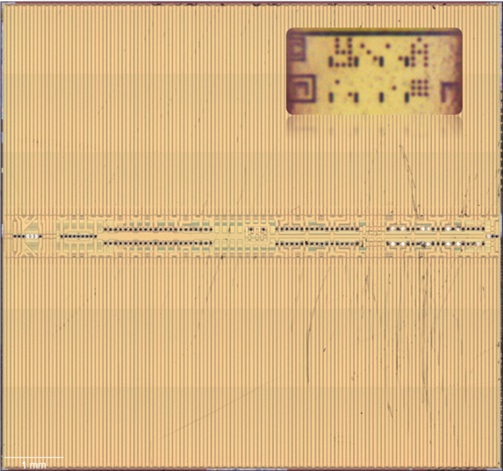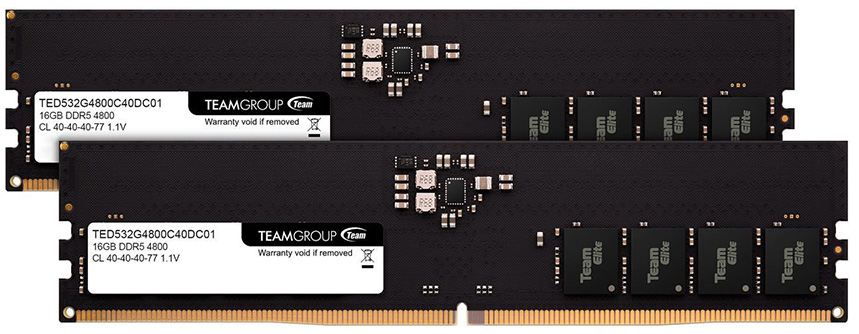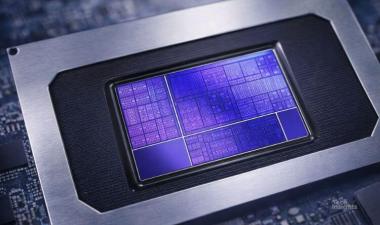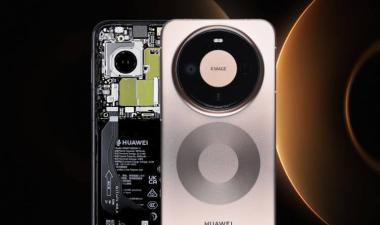
Disruptive Product: What technology node for 1st DDR5 DIMM?
DDR5 is a new generation of Memory! All the major DRAM players are moving forward to a faster DRAM, DDR5. DDR5 improves power management (1.1V vs. 1.2V for DDR4) as well. One of DDR5 DIMM products has been confirmed, with technology node, die design, and process technology. TeamGroup released ELITE 16GB DDR5 U-DIMM with JEDEC DDR5 on-die ECC which is the primary feature of DDR5. The U-DIMM packaged eight DDR5 devices in total, one of the first commercialized DDR5 products manufactured by Micron. The DDR5 device with FBGA code, D8BNJ, which is MT60B2G8HB-48B:A, has a single 16Gb DDR5 die in it. The devices and dies are the first DDR5 products we found up to date. What’s new on the die, and what technology node did they use?
TechInsights' NAND & DRAM Memory experts agree that the Micron DDR5 shows expansive system design applications such as:
- High Speed & High Capacity Mobile Processing
- 5G Networking and Data Access
- Augmented Reality (AR)
- Virtual Reality (VR)
- Artificial Intelligence
- Machine Learning
Early Micron DDR5 Circuit & Die-Level Imaging
Micron’s Market-Leading Device Specifications
DDR5 DRAM products support transfer rates of 4,800-5,600 Mbps, which is much faster than today’s DDR4 memory. DDR5’s operation voltage has also been lowered from DDR4’s 1.2V, offering users a 20% decrease in power consumption with an operating voltage of 1.1V. Micron D1z DDR5 16Gb die used for TeamGroup ELITE DDR5 U-DIMM supports 4800 Hz frequency, CL40-40-40-77 latency, and 38,400 MB/s data transfer bandwidth, doubled the banks compared to DDR4.
After quick view on the die and its technology, we’ve just found its technology node, Micron’s D1z. Micron 16Gb D1z DDR5 die with Y32A die markings, shows 0.241 Gb/mm2 bit density, which is slightly lower than Micron 16Gb D1z DDR4 die (0.247 Gb//mm2). Compared to previous DDR4, for example, DDR4-3200 from Micron (Crucial RDIMM 64GBMTA36ASF8G72PZ), higher bandwidth, higher clock rate, and lower power with a new power architecture are major changes (Table 1).
| DDR Type | DDR4-3200 | DDR5-4800 |
|---|---|---|
| Parent Product Ex. | Crucial RDIMM 64GB MTA36ASF8G72PZ |
TeamGroup ELITE 16GB DDR5 U-DIMM |
| Device Manufacturer | Micron | Micron |
| Device Ex. | DDR4 MT40A4G4JC-062E:E |
DDR5 MT60B2G8HB-48B:A |
| VDD (VDDQ) | 1.2 V | 1.1 V |
| Bandwidth | 25.6 GB/s | 38.4 GB/s |
| Latency | CL 22 | CL 40 |
| Die Markings | Z32D | Y32A |
| Cell Design (Technology Node) |
D1z | D1z |
| Die Capacity | 16 Gb | 16 Gb |
| Bit Density | 0.247 Gb/mm2 | 0.241 Gb/mm2 |
Table 1. A comparison of device features and die density, Micron DDR4-3200 vs. DDR5-4800

Figure 2. Micron DDR5 16Gb die and die markings
The first DDR5 die, Y32A, from Micron to support DDR5 DIMM products used a 16Gb die with D1z-based DRAM cell design. Die density has not been increased from DDR4 due to D1z (not D1α) used. More advanced node such as D1α generation will be applied for the next DDR5 products to further improve power efficiency and die density. We’ll be digging into this new DDR5 device and technology, especially on peripheral design, circuitry, and transistor characteristics.
Tags: Micron DDR5 DRAM Memory
Find content like this and more in the TechInsights Platform. Sign-up for free today.










